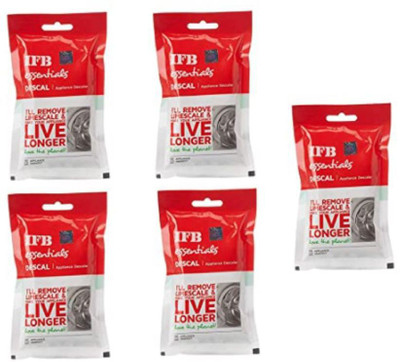
Bio Research Center CITRIC ACID (900 g)
Share
Bio Research Center CITRIC ACID (900 g)
4.6
7 Ratings & 1 ReviewsSpecial price
₹292
₹799
63% off
Available offers
T&C
T&C
T&C
Delivery
Check
Enter pincode
Delivery by2 Jul, Wednesday
?
if ordered before 2:59 AM
View Details
Quantity
- 900 g900 g
Please select a Quantity to proceed
Highlights
- Quantity: 900 g
- Type: Cleaner
- Non-alcoholic
Services
- Cash on Delivery available?
Seller
Description
Citric acid is a naturally occurring acid found in citrus fruits, such as lemons, oranges, and grapefruits. It's a weak organic acid with a characteristic sour taste and is widely used in various industries.
Chemical Properties:
- Chemical Formula: C6H8O7
- Molecular Weight: 192.12 g/mol
- Appearance: Colorless or white crystalline powder
- Solubility: Highly soluble in water, ethanol, and ether
- pH: 2.2 (1% solution)
Uses:
- Food and Beverage: Preservative, flavoring agent, and pH regulator
- Pharmaceuticals: Excipient, buffering agent, and antimicrobial agent
- Cosmetics: pH regulator, antioxidant, and preservative
- Cleaning: Descaling agent, rust remover, and cleaning product
- Industrial: Catalyst, plasticizer, and intermediate in chemical synthesis
Benefits:
- Natural and biodegradable
- Antimicrobial and antifungal properties
- Chelating agent, binding metals
- pH regulator and buffer
- Flavoring and preservative agent
Read More
Specifications
In The Box
| Number of Contents in Sales Package |
|
General
| Type |
|
| Suitable for |
|
| Non-alcoholic |
|
| Fragrance |
|
| Net Quantity |
|
Ratings & Reviews
4.6
★
7 Ratings &
1 Reviews
- 5★
- 4★
- 3★
- 2★
- 1★
- 4
- 3
- 0
- 0
- 0
5
Terrific
Good product
READ MOREGOUTAM CHATTERJEE
Certified Buyer, Jamshedpur
5 days ago
0
0
Report Abuse
Be the first to ask about this product
Safe and Secure Payments.Easy returns.100% Authentic products.
Back to top










